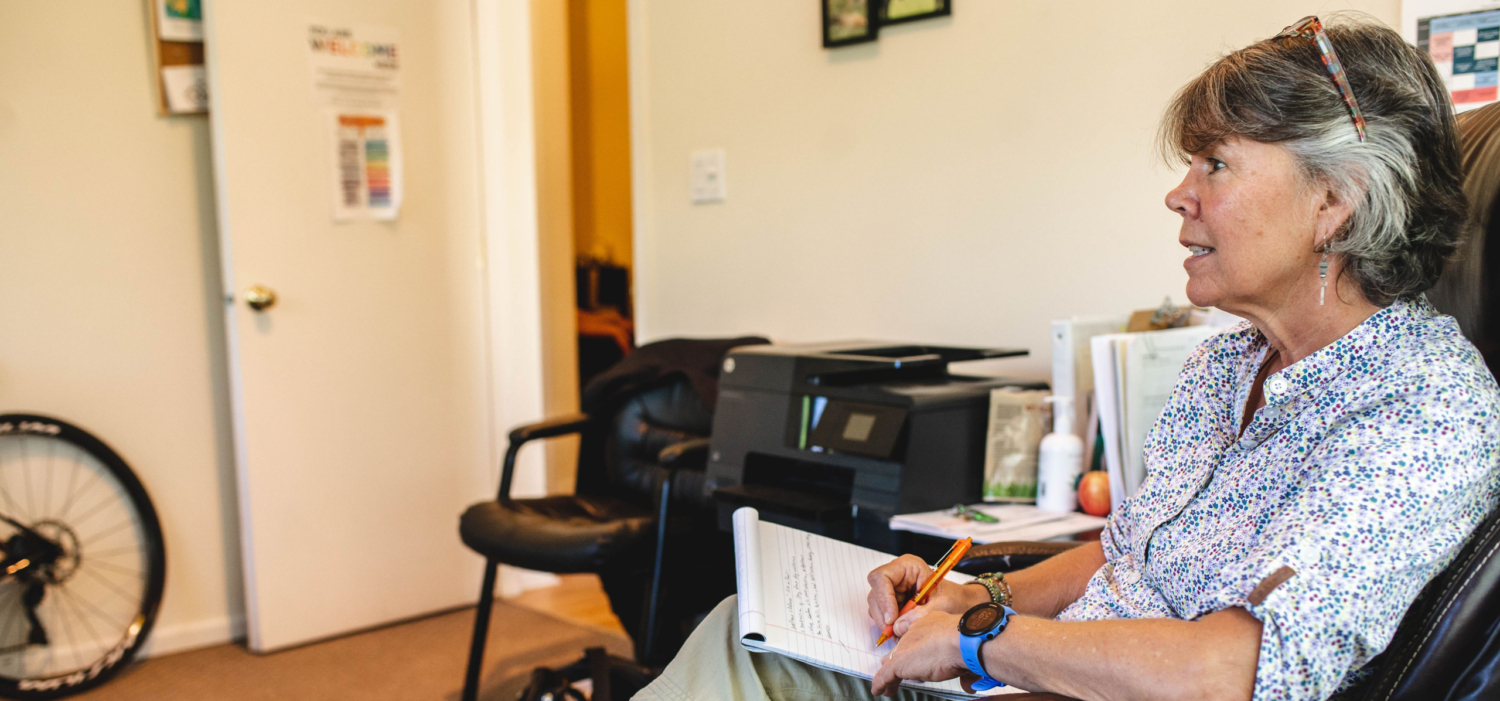The Psychodynamic Approach to Treating Schizophrenia
 Schizophrenia is a serious mental illness in which people interpret reality abnormally. “Schizophrenia is a psychosis,” wrote the late Colorado Recovery founder Richard Warner, MD, in his influential book The Environment of Schizophrenia. “It is a severe mental disorder in which the person’s emotions, thinking, judgment, and grasp of reality are so disturbed that his or her functioning is seriously impaired.”
Schizophrenia is a serious mental illness in which people interpret reality abnormally. “Schizophrenia is a psychosis,” wrote the late Colorado Recovery founder Richard Warner, MD, in his influential book The Environment of Schizophrenia. “It is a severe mental disorder in which the person’s emotions, thinking, judgment, and grasp of reality are so disturbed that his or her functioning is seriously impaired.”
Schizophrenia is not easy to diagnose and its symptoms can be confused with other conditions such as bipolar disorder. “There is no single organic defect or infectious agent which causes schizophrenia,” wrote Dr. Warner, but patients “can be treated effectively in a variety of settings.”
In an article in the Psychiatric Times, psychotherapist Mark Ruffalo, MSW, DPsa, recently looked at the psychodynamic approach to treating schizophrenia.
“At the heart of the psychodynamic approach to schizophrenia is the idea that psychotic symptoms are not random or meaningless phenomena, but rather rich, symbolic expressions of the patient’s inner world,” wrote Ruffalo. “Hallucinations and delusions are concrete representations of abstract ideas, wishes, and conflicts.”
Emerging from the work of Sigmund Freud, the psychodynamic perspective emphasizes unconscious psychological processes and contends that childhood experiences are crucial in shaping adult personality.
“We must remember that the patient’s need for communion with others is great and that a part of the patient—the part that remains healthy despite the psychosis—yearns for human relationship,” Ruffalo wrote. This is also a central aspect of the Warner treatment model which aims to empower adults with mental illness, and those who support them, with an unrelenting optimism for recovery, purposeful involvement in the community, and an enhanced sense of meaning in life.
“Contrary to the beliefs of professionals prior to the 1970s, and to the impression still promoted by the popular media, there is no evidence… that family or parenting problems cause schizophrenia,” Warner clarified in The Environment of Schizophrenia. Ruffalo nevertheless believes that “family dysfunction, attachment problems, and other adverse events in childhood contribute to the development of schizophrenia in some patients. A bio-psycho-social approach considers these environmental forces in the etiology of the disease.” Warner agreed that the reaction to stress can be an important factor in the onset of the condition.
In The Environment of Schizophrenia, Dr. Warner laid out his bio-psycho-social model of schizophrenia. “From the womb to the workplace, the environment shapes schizophrenia. The physical world and human society control how many people will develop the illness and how its course will run. Biological factors are particularly important in establishing the predisposition to the illness; psychological factors, such as the reaction to stress, can trigger the onset; and sociocultural factors, like the domestic environment or stigma, influence its course and outcome.”
Dr. Warner distinguished between “complete [psychiatric] recovery” and “social recovery,” which he defined in functional terms: economic and residential independence with low social disruption. Ruffalo feels that psychotherapy is currently underutilized in the management of schizophrenia.
“In the author’s experience—and consistent with some recent data—the psychodynamic method, which is best considered a complement to pharmacotherapy, can help patients make sense of their odd and seemingly senseless experiences and reconnect them to the outside world. It forms an important part of a bio-psycho-social approach to the most fascinating and complex of human illnesses.”
The Colorado Recovery treatment model created by Dr. Warner is based on a warmer and more human familial setting, comprehensive levels of care that result in a path of self-reliance, and community engagement for connection and a feeling of contribution.
Since Dr. Warner’s passing in 2015, we continue to innovate based on these core principles. It is our mission to help adults with serious mental health issues stabilize their illness, minimize symptoms, improve functioning, and enhance each person’s social inclusion, quality of life, and sense of meaning in life.
If you have questions about our recovery model or our services to treat schizophrenia, bipolar disorder, and similar mental illnesses, call us at 720-218-4068 to discuss treatment options for you or the person you would like to help.
Financing Treatment at Colorado Recovery

Colorado Recovery is not in-network with any insurance provider. That doesn’t necessarily mean you can’t afford treatment for schizophrenia, bipolar disorder, schizoaffective disorder, and other psychiatric disorders at our first-class facility.
Unfortunately, Medicaid and Medicare will not reimburse for any treatment services at Colorado Recovery. However, most Medicare plans and Colorado-based Medicaid will provide coverage for medications and laboratory services at the same rate as the benefit amount in the insurance policy.
Colorado Recovery is a private pay provider, meaning payment in full is expected upfront and ongoing throughout the treatment process. Colorado Recovery does not submit claims to insurance companies for payment but will help you submit claims.
“Our billing department will help you with a claim that you can submit to your health insurance to be processed out of your out-of-network benefits,” says Colorado Recovery billing coordinator Lee Russo. “Not everybody gets reimbursed, it really depends on what kind of out-of-network benefits the client’s provider offers. Every insurance is different.”
 We can help identify a client’s out-of-network insurance benefits prior to entering treatment. If a client has out-of-network benefits, our team will complete the necessary pre-certification and ongoing authorizations as requested by the insurance company.
We can help identify a client’s out-of-network insurance benefits prior to entering treatment. If a client has out-of-network benefits, our team will complete the necessary pre-certification and ongoing authorizations as requested by the insurance company.
“I provide that service for anything that’s billable—residential or outpatient—they only have to submit their details to me and I do the rest,” says Russo. “And if people are on Medicaid—which we don’t take—we will nonetheless help them find an appropriate treatment facility that does. We certainly don’t just say ‘sorry’ and hang up. When people call we explain all their options that we know of, so they can get the help they need.”
Sometimes people want a guarantee that out-of-network costs are covered and learn that we cannot guarantee that. “We can try and help them submit claims with their provider but we have to be upfront with clients that there is no guarantee,” explains Russo. “A lot of people like our non-institutional environment very much and try hard to find a way to finance treatment at Colorado Recovery. We are not set up like an institution, we’re set up more like a home with a family atmosphere.”
A warm familial setting, dynamic levels of care leading to a path of self-reliance, expert staff to improve diagnoses and treatment plans, and community engagement for clients—these are the hallmarks of the Warner model utilized at Colorado Recovery.
 Colorado Recovery founder Richard Warner distinguished between “complete [psychiatric] recovery” and “social recovery,” which he defined in functional terms: economic and residential independence with low social disruption. Two important components of that are employment and independent housing. We recently added an affordable and flexible independent living option for clients who are ready for this low level of therapeutic support.
Colorado Recovery founder Richard Warner distinguished between “complete [psychiatric] recovery” and “social recovery,” which he defined in functional terms: economic and residential independence with low social disruption. Two important components of that are employment and independent housing. We recently added an affordable and flexible independent living option for clients who are ready for this low level of therapeutic support.
At Colorado Recovery it is our mission to help adults with serious mental health issues stabilize their illness, minimize symptoms, improve functioning and enhance each person’s social inclusion, quality of life, and sense of meaning in life.
If you have questions about our recovery model or how to finance our services to treat schizophrenia, bipolar disorder, and similar mental illnesses, call us at 720-218-4068 to discuss treatment options for you or the person you would like to help.


